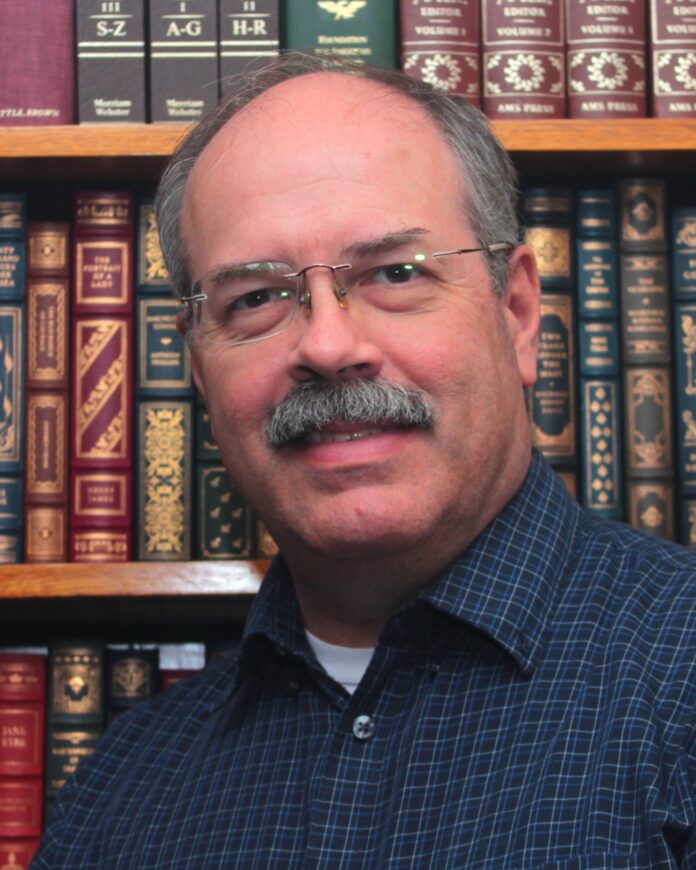At the first meeting of the Piedmont City Council since voters in August overwhelmingly defeated general obligation bonds that would have raised property taxes, a city councilman has another idea to fund such infrastructure improvements.
Piedmont could be considered “blighted,” said Piedmont City Councilman Byron Schlomach, who represents Ward 5. And that would make it possible to create a tax increment finance district, or a TIF, to carry on with such projects like the ones turned down in the GO bond vote last month for streets and sidewalks and lighting. Such amenities would attract business and add incentive to move to Piedmont, Schlomach said.
“The purpose is to provide funding for blighted areas basically to create economic development by spending mainly on infrastructure,” Schlomach explained to the city council. Monday, Sept. 23.
“It does not result in a tax increase,” Schlomach said. He said the entire city could be included in a TIF.
“I think it would be an excellent tool to use,” Schlomach said. He said a committee would be formed with a representative from Piedmont Schools and Canadian County.
A TIF would be funded with tax money from Canadian County and the Piedmont School District, if created. The idea is to attract business to Piedmont and spur economic development and increase property values.
New businesses would still pay their share of property tax, but school district and county would collect less in the short-term but see gains after improvements and new properties and owners move in. More tax revenue would be generated by attracting business.
At a Piedmont City Council meeting Monday night, Sept. 22, Councilman Byron Schlomach proposed studying the creation of a TIF in Piedmont. It would surely cover the downtown area but could be declared for all of Piedmont. Schlomach said he thinks all of Piedmont could be considered a blighted area that needs improvements.
Three general obligation bond issues totaling $16.7 million were proposed by the city in an Aug. 27 vote that was heavily defeated that would have raised taxes for homeowners in Piedmont.
A TIF, if created, would not raise taxes for homeowners, Schlomach said.
Schlomach said he has previously been opposed to TIF districts because in some cities he thinks they have been used to favor an area of the city over another area, he said. So, an idea would be to cover all of Piedmont. Roads continue to deteriorate. Potholes continue to be a problem, and prioritizing road improvements is a challenge in Piedmont.
“We need development in Piedmont desperately, so let’s create the TIF district and hopefully encourage development that we would not otherwise get,” Schlomach said.
The council on Monday unanimously approved instructing the city manager and city attorney to work on the process required to institute a TIF district in the city.
What is a TIF?
Oklahoma law allows cities and counties to establish tax increment finance districts, TIFs, for the purpose of economic development in areas where it is difficult for economic development without government investment efforts, according to a note written by Schlomach in the agenda packet for the meeting.
“Such areas are often called “blight” Given its often dilapidated, inadequate and neglected infrastructure of all types, much of Piedmont could be considered blighted. A TIF district, once established, collects property and/or sales tax revenues that would have gone to school districts and or the county.,” Schlomach wrote. The funding would come from property tax based on property valuation increases that would be expected after money is spent to improve infrastructure, he said. Areas of Piedmont could be considered blighted, he said.
“Nearly the whole city (Piedmont) could count as blighted,” Schlomach said at the Monday meeting.
He explained it further in the agenda packet information released for the Monday meeting.
“A base amount of revenue is determined within the TIF at the time of its formation. Then, any additional revenue that occurs above that base amount accrues to the TIF. That expected ash flow can be used as a basis to issue bonds and can be spent on infrastructure improvements,” Schlomach wrote.
“It is only with infrastructure improvements that Piedmont will become truly attractive to new businesses, retail and otherwise, especially downtown. Piedmont desperately needs the enhancement of its own business base to achieve self-sufficiency in providing roads and other services,” Schlomach wrote.
“Hopefully next month (October) we will be able to move forward from there,” Schlomach said at the Monday meeting. “I would like for at this point find out what the steps are we need to take.”
In other business, the council also voted Monday, Sept. 23, against a plan for a roundabout for traffic at the intersection of Piedmont Road and Edmond Road. The vote was 3-2 to put stoplights in the intersection.
More foot traffic is expected as the Wildcat Corner continues to be developed at the location.
Read The Piedmont-Surrey Gazette for coverage of local news.







